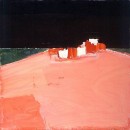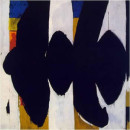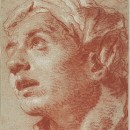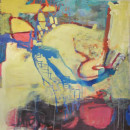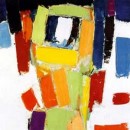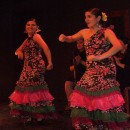The Death of the Goddess
Knowing my interest in Indian literature, Professor Hogan has kindly sent me a copy of his long poem entitled The Death of the Goddess. (1) The author’s Preface explains why the poem was written – it’s had a long gestation – and an Introduction by Rachell Fell McDermont provides an apt summary of the story and its themes. Let me first say something about the style. As can be seen below, the verse is clear, exact and made more compelling by its neutral tone. It doesn’t rise to commanding heights, or exult in memorable phrases, but doesn’t have to. Here is one of the more scatological sections (Shiva is speaking about a woman encountered on the battlefield, unnamed but possibly a Kali-like incarnation of Little Mother: canto 9): She had stripped off the outer breast-plate and leggings of her...
Read MoreHegel and the Romantic Movement
First I should apologize for the long interval from my last post, which has been spent in converting, rewriting and updating web-pages to free pdf ebooks: Verse Writing, Literary Theory, A Background to Critical Theory, amounting to a rather unbelievable half million words, all available from Ocaso Press at http://www.ocasopress.com. Now to the post. I have been reading Jerry Muller’s admirable book on the origins of capitalism, or rather how capitalism has been analyzed, defended and extended by generations of European thinkers. {1} In his chapter on Hegel, Muller identifies the Romantic notion of freedom, which plays a large part in Modernist and Post-modernist writing. He says: ‘In this Romantic conception, freedom is measured by ‘the extent to which it diverges from what is universally acknowledged and valid and manages to invent something particular for itself’. That divergence from...
Read MoreThe Rhapsodic Fallacy
I’ve been reading, or at least dipping into, Twentieth-Century American Poetics: Poets on the Art of Poetry (McGraw-Hill, 2004), a collection of some 53 essays or articles edited by Dana Gioia, David Mason and Meg Schoerke. The range is from James Weldon Johnson (1871-1938) to Christian Wiman (1966-), and includes many illustrious names. The contributions seem sensibly chosen, moreover, and the book deserves a proper review in due course. My concern here is an essay entitled The Rhapsodic Fallacy by Mary Kinzie and published in the fall 1984 issue of Salmagundi. The theme generated a good deal of discussion, and Mary Kinzie later expanded the ideas into a full-length book: The Cure of Poetry in an Age of Prose. {1} Kinzie makes no bones about the fallen state of contemporary poetry, even thirty years ago. The essay opens: Contemporary...
Read MoreHorace: The Odes. New Translations by Contemporary Poets
A review of Horace: The Odes. New Translations by Contemporary Poets. J.D. McClatchy (ed.). Princeton University Press, 2002. ISBN 0-691-04919-X
Read MoreReviewed: The Cambridge Companion to American Poetry Since 1945
Review of The Cambridge Companion to American Poetry Since 1945 by Jennifer Ashton (ed.). CUP, 2013
Read MoreReviewed: The Mystery of the Charity of Charles Peguy by Geoffrey Hill
Literary critique of Geoffrey Hill’s The Mystery of the Charity of Charles Peguy.
Read MoreReviewed: Francis Prose’s Reading Like a Writer
A look at Dr. Johnson’s prose: what it hides.
Read MoreReviewed: The Undiscovered Country
Reviewed: The Undiscovered Country. Columbia University Press. 2005. 400 pages. ISBN-13: 978-0231136389. William Logan and the nature of literary criticism.
Read MoreLove and Lust
Review of Love and Lust: An Anthology of Erotic Literature from Ancient and Medieval India.
Read More
